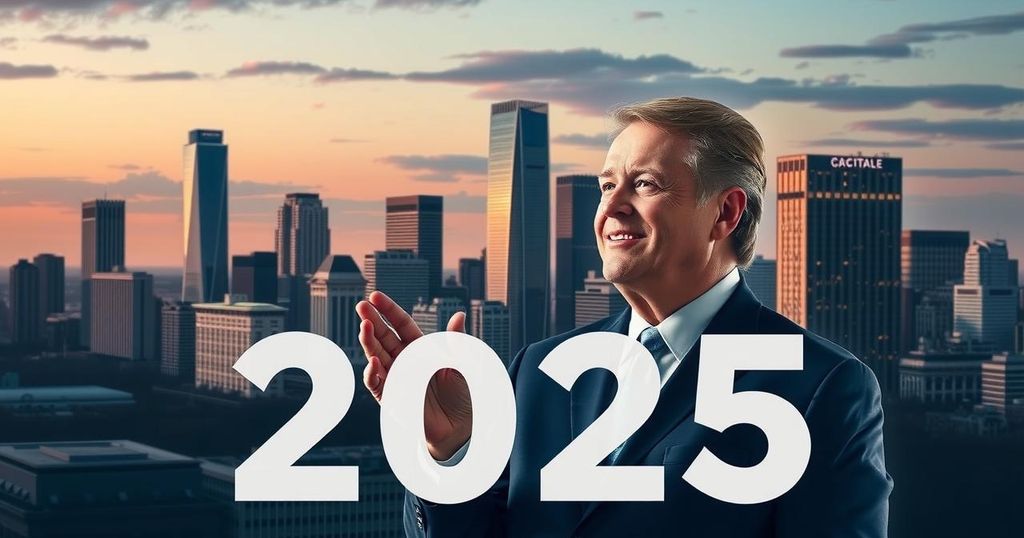Incumbents Face Uncertain Future Amidst Electoral Turmoil and Inflation
2024 has marked an unprecedented year of electoral defeat for incumbents across developed democracies, primarily attributed to inflation and changing voter attitudes. This shift suggests a decline in traditional party loyalty and an expectation for rapid responsiveness from elected officials, indicating growing volatility in political landscapes. Upcoming elections in 2025 may continue to challenge incumbents as voter discontent escalates, demanding a new format of accountability and reward in governance.
2024 is characterized as a tumultuous year for incumbents globally, marking the most substantial electoral defeats for sitting officials in the annals of modern democracies. This unprecedented phenomenon sees governing parties across developed nations losing ground, fundamentally reshaping the political landscape. As concerns with inflation ripple across numerous economies—an issue magnified by the lingering impacts of the Covid-19 pandemic and geopolitical tensions, especially the war in Ukraine—voters have begun to adopt a more aggressive stance towards incumbency, displaying a disinterest in traditional stability. The shift in electoral behavior indicates a potential long-term transformation in democratic practices, wherein voters exhibit consumer-like expectations for responsiveness and satisfaction from their elected officials.
Looking into 2025, the atmosphere surrounding incumbency continues to forecast challenges for those seeking reelection. As seen in numerous countries, including Germany and Canada, incumbent leaders are bracing for hostile electoral climates that reflect deep-seated voter discontent. Scholars suggest that as societal bonds to traditional party loyalty erode, the electorate’s expectation for immediate results complicates the existing political framework, potentially paving the way for more frequent turnover in leadership positions. This increased volatility reflects a cultural shift toward higher fluidity in voter allegiance, further driven by the generational embrace of rapid gratification and ever-growing choices in everyday consumption.
While incumbents may find it difficult to navigate these unsettling waters, there is the possibility for recovery should inflation return to manageable levels and economic stability resumes. Concepts once thought to be set in stone, such as incumbency advantage, are increasingly tempered by the reality that voters may prioritize change over continuity, marking a new era in democratic engagements. It raises the question—will future elections serve merely as punitive measures, or can they also foster environments that encourage accountability and reward?
As 2025 approaches, a spectrum of elections poses a further examination regarding historical patterns of incumbency within various democracies, which are no longer characterized only by economic stability and political longevity. There remains a delicate balance to be struck between holding leaders accountable and offering them platforms for merit-based praise for their governance.
The article examines the electoral climate of 2024, identified as a challenging year for incumbents across numerous developed democracies. It highlights that traditionally, incumbency afforded a protective aura against electoral defeat but notes a significant shift as voter sentiment has evolved. Influenced by economic challenges, predominantly inflation, which has surged following the post-pandemic recovery and geopolitical conflicts, voters appear increasingly willing to reject incumbent leadership. This change is attributed to both material economic concerns and cultural shifts towards decreased partisan loyalty, leading to heightened volatility in democratic systems. The ensuing analysis prompts reflections on the implications for future elections, particularly in 2025.
In summary, the 2024 elections signal a profound transformation in democratic engagement, characterized by heightened voter discontent and declining incumbent support. The challenges faced by incumbents, particularly in light of inflationary pressures and shifting voter expectations shaped by generational trends, suggest that the political landscape is undergoing a critical realignment. As democracies evolve, the balance between accountability and reward will be essential in shaping future governance, underscoring the need for responsiveness in political leadership.
Original Source: www.cnn.com




Post Comment